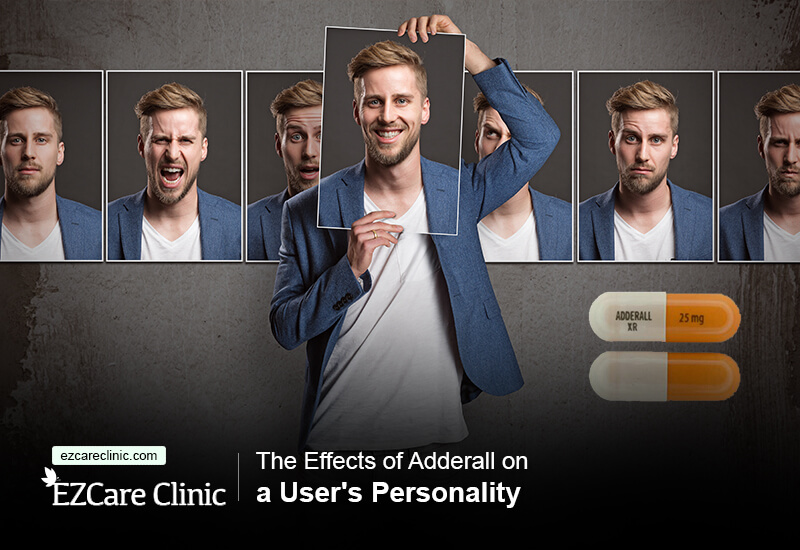Adderall has a
Whether you’ve been taking Adderall for a while and noticed unusual sensations in your mouth, or you’ve just started treatment and overheard someone talking about this side effect — leaving you worried — read on to understand why it occurs and how to manage it.
Highlights
- Adderall tongue refers to a group of symptoms reported by people taking this medication; it is not a medical term.
- Some Adderall tongue symptoms include dry mouth and lips, a sore or burning tongue, bad breath, and tongue thrusting.
- Management strategies include self-health techniques, reducing the Adderall dosage, stopping Adderall completely, and considering other ADHD medications.
What Is Adderall Tongue?
Adderall tongue is not a medical term, but rather a name that people taking Adderall use to describe a group of unpleasant symptoms that some experience. These include a sore or burning tongue, dry lips and mouth, and others. Dry mouth is one of the most common side effects of Adderall XR in adults, with
Symptoms of Adderall Tongue
Let’s take a look at some of the more commonly reported tongue-related complaints:
- Dry mouth and tongue
- Soreness, rawness, or burning sensation
- Ulcers or mouth sores
- Bad breath
- Altered taste perception
- Tongue thrusting
- Swelling or puffiness
Sometimes other parts of the mouth can also be affected, including:
- Dry or cracked lips
- Tooth decay
- Gum disease
- A sore throat
- Difficulty swallowing
- Jaw clenching
- Teeth grinding
What Causes Adderall Tongue?
One possible cause is that Adderall can trigger the sympathetic nervous system, mimicking a fight-or-flight or
Reduced saliva production and sweating can also contribute to dehydration, worsening the dry mouth. Saliva plays many roles in keeping your mouth and tongue healthy by:
- Keeping them moist
- Dissolving sugars
- Fighting bacteria with antibodies and enzymes
- Decreasing acidity in the mouth
- Repairing tissue
So it makes sense that if you don’t have enough saliva, the rest of the Adderall tongue symptoms follow:
- A burning, sore, or painful tongue
- A loss or decrease in taste
- Increased infections, such as dental decay, gum disease, and mouth ulcers, which can cause
bad breath[6] - Mouth and tongue sores that can’t heal
Other potential Adderall effects are abnormal, involuntary tongue and jaw muscle movements; these are thought to be caused by the
Lastly, although uncommon, Adderall might cause tongue swelling due to allergies; this is called angioedema.
How Long Does Adderall Tongue Last?
Some people taking Adderall experience these side effects during the whole course of treatment, while for others, these may resolve on their own. Also, Adderall tongue does go away if the medication dose is lowered or stopped (immediately or over a couple of weeks, depending on the dosage, duration of treatment, and individual response).
The good news is that it’s manageable. Let’s look at how to get rid of the dry mouth and other tongue-related side effects of Adderall.
How to Get Rid of Adderall Tongue
Here are a few
- Sipping water often, as staying hydrated might improve saliva production.
- Chewing sugar-free gum or sucking lozenges to stimulate saliva production.
- Using
artificial saliva products[10] often helps, although they are short-acting, often expensive, and can taste bad. - Avoiding caffeine,
alcohol, and tobacco[11] , as they also affect saliva production and quality. - Avoiding acidic, hot, and spicy foods that might irritate the tongue.
- Practicing good oral hygiene helps clean the mouth from sugar and bacteria.
- Using a soft-bristle toothbrush to avoid aggravating discomfort.
- Choosing a
gentle toothpaste[12] that doesn’t contain flavorings or harsh detergents, bleaching, or foaming agents. - Using a tongue scraper to remove dead cells and bacteria, improving bad breath.
- Using lip balms.
- Keeping the air moist with a room humidifier.
- Avoiding mouth breathing by keeping your nose open, using saline intranasal sprays.
However, if these strategies are not helping with Adderall tongue side effects, the bottom line is that you need to see a healthcare professional.

Is Adderall Tongue Dangerous?
Although most of these symptoms are just uncomfortable, they can still impact your quality of life if you:
- Are constantly aware of your sore tongue and dry mouth
- Avoid people because of bad breath
- Can’t taste or eat your favorite foods
Rarely, however, Adderall tongue symptoms might point to something more serious. Possible warning signs of allergy or infections are swelling of the tongue or lips, difficulty breathing, persistent or bleeding sores, or severe pain. If you experience these at any stage, urgently seek professional advice.
So, for ongoing or severe symptoms, your healthcare provider may need to:
- Stop the Adderall immediately and consider allergy testing if an allergic reaction is suspected
- Lower the Adderall dosage, as side effects are worse at higher doses
- Explore alternative ADHD medications with fewer side effects
- Prescribe antibiotics or refer you to a dentist in the case of infection
In Conclusion
Adderall tongue is a common side effect. Usually, it only causes discomfort, although there may also be serious cases. If you are experiencing Adderall tongue or other unwanted effects on your ADHD medication, make an appointment with a healthcare provider at MEDvidi to optimize your ADHD treatment plan.













